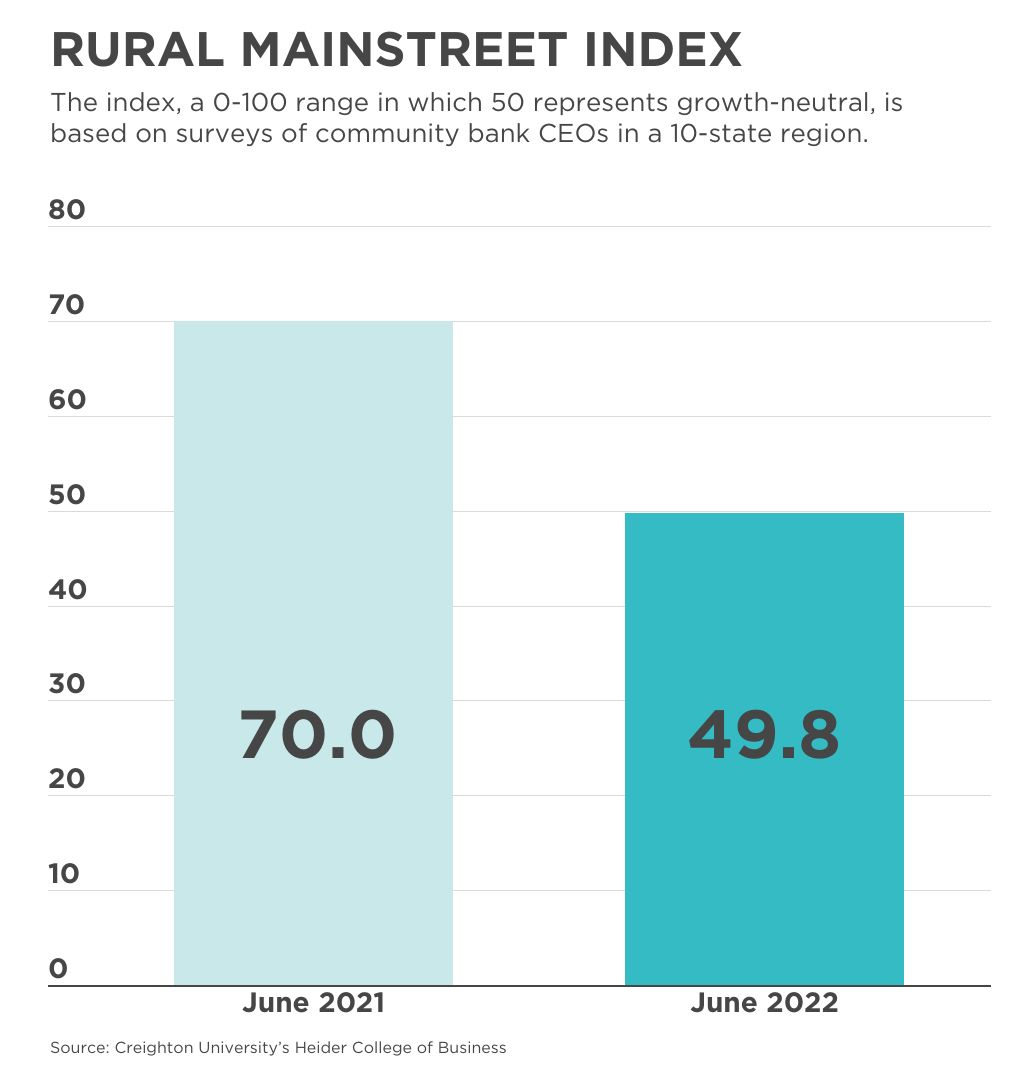[section]
[section-item]
[row]
[column 12]

[/column]
[/row]
[/section-item]
[/section]
The rural economy is starting to shrink due to recession fears and other economic tensions, bankers said in a June survey.
For the first time in almost two years, the overall reading in the
Rural Mainstreet Index fell below growth-neutral to 49.8%, its lowest level since September 2020, and down from May's 57.7.
“Much like the nation, the growth in the Rural Mainstreet economy is slowing,” said survey author Ernie Goss, a professor at Creighton University's College of Business in Omaha, Nebraska. “Supply chain disruptions from transportation bottlenecks and labor shortages continue to constrain growth.”
In the monthly survey of community bank presidents and CEOs in 10 states, the index ranges from 0 to 100, with a reading of 50.0 representing growth-neutral.
This month, bankers were asked about the likelihood of a recession within the next 12 months. More than 90% rated the probability at above 50%, while 7% indicated that it was below 50%.
The business confidence index, bankers’ expectations for the economy six months out, fell to 33.9, its lowest level since May 2020. Surging prices and recession fears resulted in the outlook’s lowest back-to-back readings since the beginning of the pandemic in April and May 2020.
Inflation and other economic pressures are causing more farmers to borrow to cover higher costs for energy, fertilizer and other expenses. This month, the loan volume index rose to 78.5, its highest reading since May 2019.
For the 21st straight month, the farm and ranchland prices continue to be above growth-neutral. This month, the price index rose to 76.8 from 72.0 in May.
“Over the past several months, the Creighton survey has registered the most consistent and strongest growth in farmland prices since the survey was launched in 2006,” it said.
The home-sales index dropped to a solid 55.4 from May’s 61.5. The retail-sales index for June sank to 48.2 from May’s growth-neutral 50.0.
“Rising energy prices and higher interest rates reduced home and retail sales on Rural Mainstreet,” said Goss.
